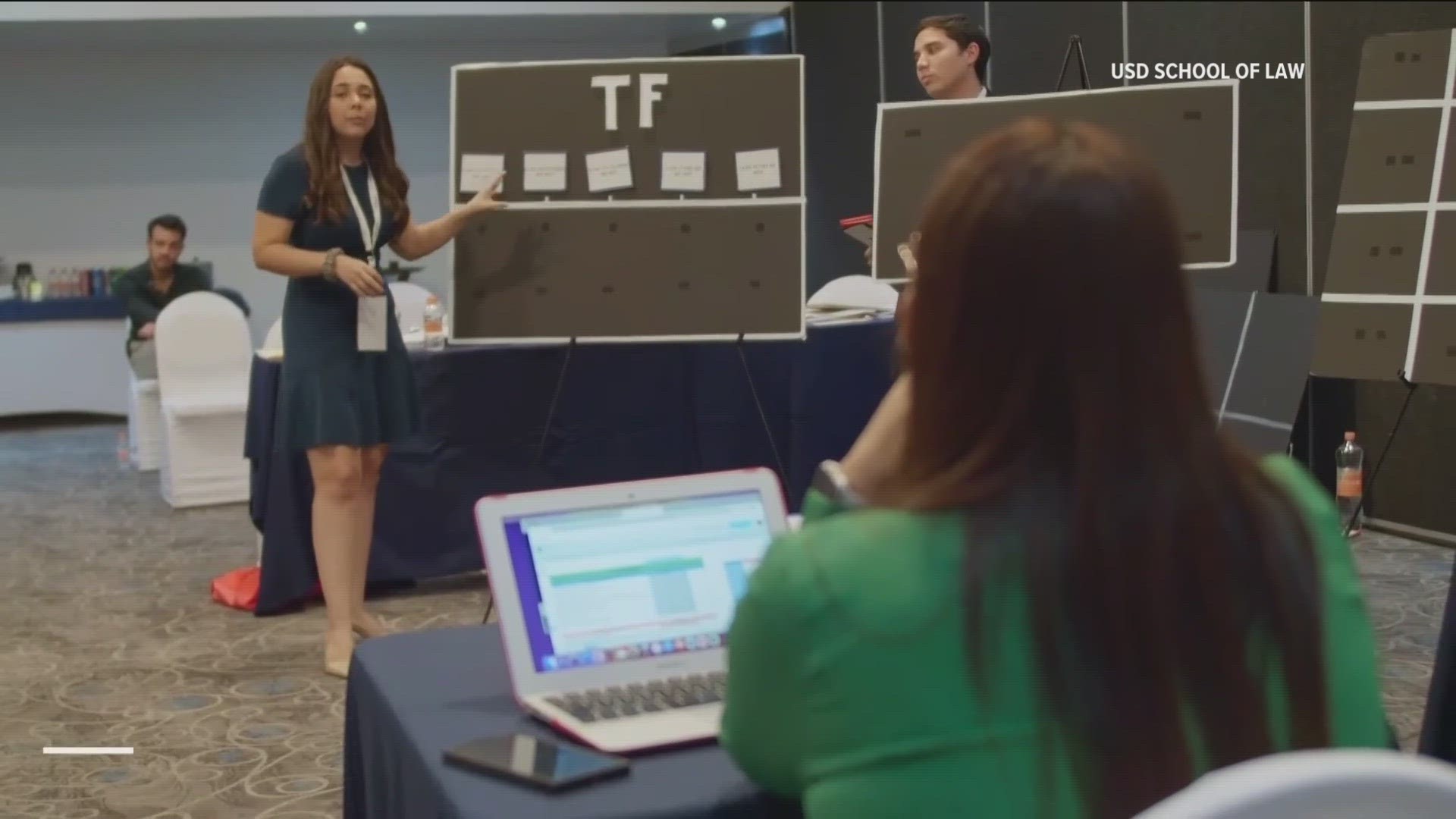SAN DIEGO — Mexico has more law schools than the United States but local law professors say many lawyers and law students across the border are not taught how to litigate in a trial, leaving many not to trust the rule of law.
This semester the University of San Diego started a new masters in law (LLM) program that is taught entirely in Spanish, not only to empower law students but to improve the rule of law in Mexico.
For 24 years, the California Innocence Project co-founder, Justin Brooks, worked tirelessly to free 40 prisoners who were wrongfully convicted.
“That was really my identity. I'd wake up every day and put on my exonerate shirt and start tweeting about wrongful convictions. And it was more than a job, it was really a mission,” said Brooks.
But now you'll see him in a new role. He's the academic director of the University of San Diego’s new one-year master’s program in Comparative Law which studies legal systems in different jurisdictions. The class is taught virtually and exclusively in Spanish with many Latin American students.
“What most people don't know is for 400 years, Mexico had no trials, no criminal trials,” said Brooks.
Before Mexico reformed its criminal judicial system in 2008, a judge decided each case with little cross-examination. There were due process violations and corruption and thousands of lawyers and law students didn't have the skills to be trial lawyers.
“What we're dedicated at the University of San Diego to doing is training those law students training those lawyers, how to do trials, how to cross-examine witnesses, how to bring the truth out and evidence,” said Brooks.
By teaching the class in their native language, many students feel empowered.
“I want to learn in Spanish because I'm not sure if I feel comfortable with the 100% English class,” said Rebecca Ledesma
She is enrolled in the class and practices employment law in Mexico but wants to learn how to litigate tax law in America.
“It’s extremely different. It's just a whole new process that we're still learning,” said Ledesma.
The graduate student is a single mother and is the first in her family to become a lawyer and is planning to take the bar in America in 2025.
“I think as a woman, we're really passionate. So I'm always craving for something more,” said Ledesma. “I love to help people,” said Ledesma.
Unlike the United States, in Mexico you're guilty until proven innocent.
“They don't have preservation laws of evidence where people don't get access to DNA testing. And lawyers are not fundamentally trained in litigation skills, in order to bring the truth out in trial,” said Brooks.
USD says this program not only builds confidence in Latin American law students and trust for their country's judicial system, but this strengthens U.S./Mexico relations.
“Being on the border provides an opportunity for the USD law and Mexico, it is a gateway to all of Latin America, so it is very important for USD law to offer these programs and become much more open,” said Karen Sigmond, PhD, USD Law, Senior Director of Graduate, International and Certificate Programs
Through a grant, USD also turns the classroom into the mock courtroom where students in Mexico take their trial training and compete across the U.S.
“This gets them engaged excited learning these skills. And they become basically pioneers among their peers,” said Brooks.
During his tenure at the Innocence Project, Brooks also taught law in Latin America.
He may have changed roles, but he still sees himself as a pioneer to help improve the rule of law in Mexico.
“I have a great deal of hope about Mexico, it is a massive country. It has a lot of issues. But when you work with these young people, you realize they want change, they want the system to do better, they would they want to change the country,” said Brooks.
The master’s in Comparative Law is a one-year program that is currently taught online on Thursday evenings and Saturday mornings. For many this gives students across the border the opportunity to commit to a law degree and still live and work in their native country without taking a year off.
Watch Related: 'No Sabo Kid' learns Spanish through love of Mariachi music (Sep 20, 2023)

